Hosted by Claire Musters
This month I’m reading…
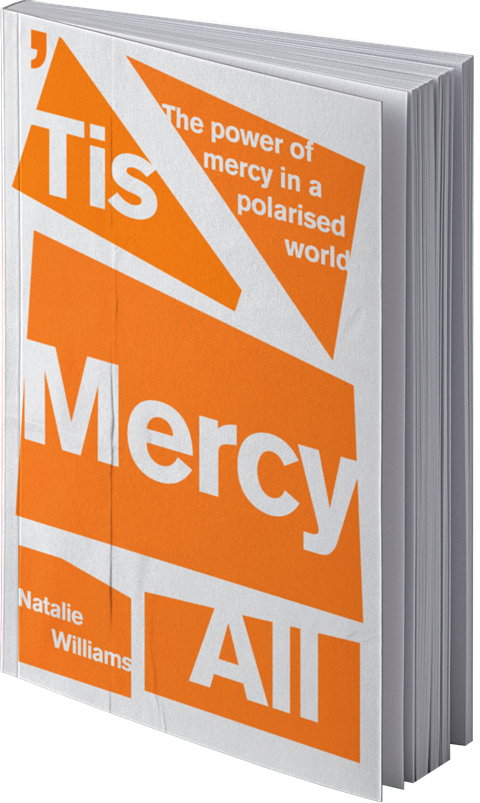
‘Tis Mercy All: The power of mercy in a polarised world By Natalie Williams (Form, 978-0281089185)
Natalie is the CEO of Jubilee+, a national Christian charity that works to equip churches to engage meaningfully with those in need within their local communities. She has written books previously that call the Church to change its thinking towards the poor and to act with justice.
It is this new book that Natalie believes contains her life’s message. Right at the start she explains: “I imagined I would write this book in my old age, when I had learned everything there is to know about the mercy of God.” But she felt compelled to write about his mercy while still in her 40s.
‘Tis Mercy All is a rich read, full of truth about God. But it is also an uncomfortable one, which necessitates acknowledging and dismantling thoughts and attitudes through repentance. I would thoroughly recommend it, but be prepared to be challenged!
Could you explain how you ended up writing this book much earlier than anticipated?
Between 2013 and 2021 I went through several really painful experiences – most of them to do with losing people I loved in one way or another – through death, their sin, my sin or relationship breakdown. With each new layer of heartache, it seemed as though God was opening up my oldest and deepest wounds and giving them a thorough wash with stinging antiseptic! It was painful, and at times I wondered if I’d emerge intact because, to be honest, I just wanted to go to be with Jesus so it would be over. But the one thing that ran deeper than the pain was this growing awareness of his mercy. I had wanted to write about his mercy one day, but it was only through these trials that I started to see that everything – even the very worst of things – can become a mercy to us. In September 2021, I was reading something about Elijah wanting to die, but he didn’t know what he would yet see and experience if he lived. I felt God ask me what would make me want to delay going to be with Jesus, if I knew it was around the corner. The answer was writing ‘the mercy book’. So, I started to write it. I mentioned it to a couple of friends, and they told me to get on with it. Then I asked a speaker at a conference how he had known it was the right time to write the book he’s most well known for. He didn’t really answer the question, but the next morning he said that even though we had only talked about it for a couple of minutes the day before, he hadn’t been able to stop thinking about my mercy book and felt I should write it right away. So, I did.
How would you describe mercy?
In a nutshell, mercy is loving-kindness in action to someone who doesn’t deserve it, has no right to it or claim on it. It’s bigger and broader than just being spared a punishment you deserve. It is being spared, but it’s also being lavished with so much kindness and love that is undeserved. That’s why it’s transformative – because when we see it clearly, it’s utterly astonishing.
Why do we find justice much more attractive than mercy, particularly when it is someone else on the receiving end?
I believe that one of the ways God has designed us as his image bearers is with this gut instinct for justice. We want what is right and fair, and that’s a good thing – God is a just God and we reflect him when we long for and pursue justice. But we find it hard to reconcile mercy and justice together. In fact, the only place they are in perfect alignment is at the cross. I want mercy when I’m in the wrong, and justice when I have been wronged. In my case, this is usually because I can explain my good intentions and the mitigating circumstances when I’ve harmed someone, but tend to assume bad motives and no legitimate excuses when someone has harmed me.
You challenge our thinking by including biblical accounts of Jesus not only being merciful towards the poor and outcast but the wealthy too – indicating that he acted not in response to people’s behaviour but “in accordance with his own character”. How does meditating on his character change our thinking in relation to this?
When we look at how Jesus treated people – I mean really look – we see such extraordinary mercy and tenderness combined with unwavering honesty. Most of us lean one way or the other, but Jesus fully embodied both grace and truth. We tend to react to the person or situation in front of us, whereas Jesus stayed true to his character at all times. He wasn’t swayed by the behaviour of others, like I am, but behaved like his Father at all times.
You say that we do not drift in the direction of mercy – we have to be intentional in pursuing it. What does that look like?
For me, it looks like asking God to help me to see my own heart more clearly and asking friends to help me with that. It looks like being open to correction. It looks like intentionally catching my immediate responses to people and situations, and then internally unpicking that to explore what was going on with me, sitting beneath the knee-jerk judgement, for example. And then it looks like actively working in the opposite spirit – for example, if I am getting angry with someone, to pray my best prayers of blessing over them. I am a work in progress with this – that’s why I need the Holy Spirit and good friends to help me clock the attitudes and then push against them, leaning in the other direction.
What aspect of God’s mercy challenged you the most personally when writing about it?
Whether it really is true that everything that happens to us can be God’s mercy to us. I’ve been through some horrible, traumatic experiences, and am very aware that many others have suffered much worse. On what basis do I dare to say ‘tis mercy all? Solely on the basis that it’s what the Bible teaches, it’s what a high view of the sovereignty of God tells me and, to my great surprise, it’s what I now see as I look back over many dangers, toils and snares in my own life.
How did you settle on the title of the book?
I love the hymn that it comes from, and I have the line: “‘Tis mercy all, immense and free, For O my God it found out me!” tattooed on my arm. Though it uses old-fashioned language, and so we debated the title at length, in the end it’s really the best way to sum up the core message of the book.
What is your hope for those who engage with your book?
In the writing and editing process, I have read and re-read the opening chapters probably a dozen times, and every time I end up weeping with joy and gratitude that God really is this loving, this tender-hearted, this committed. I hope that others will take a deep dive into his mercy, like I have, and find Jesus to be even more beautiful and captivating than they believed. After that, I hope that we will all become more merciful as a result, just like our Father is merciful.
Natalie Williams on:
The books that have changed my life

The Silent Shades of Sorrow
by CH Spurgeon
This is a beautiful collection of Spurgeon’s words on suffering and all kinds of depression. It’s the book I’ve read the most times – I read it when my heart hurts, because through Spurgeon’s words I can almost feel the tender hands of Jesus holding and healing my heart.
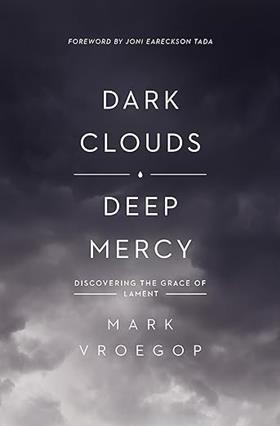
Dark Clouds, Deep Mercy
by Mark Vroegop
This book taught me how to sorrow well, how to lament openly though not to sit in the valley but to keeping putting one foot in front of the other in order walk through it.
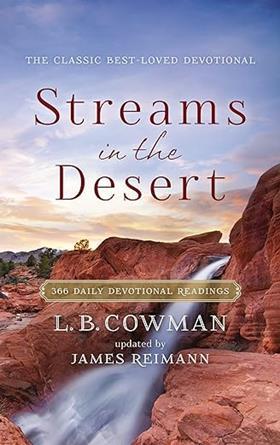
Streams in the Desert
by LB Cowman (edited by James Reimann)
This is my favourite year-long daily devotional, as it has a great mix of encouragement but also plain truth that God is working even in the hardest of times.













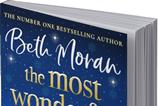
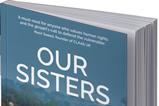


















No comments yet